Apollo's Torsten Slok Unveils Timeline For Trade War Fallout
Tyler Durden
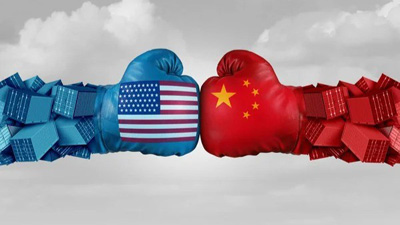 The first wave of the trade downturn is already affecting the U.S. West Coast, with the Port of Los Angeles experiencing a sharp decline in containerized imports from Asia, following months of elevated frontloading by U.S. importers. The first wave of the trade downturn is already affecting the U.S. West Coast, with the Port of Los Angeles experiencing a sharp decline in containerized imports from Asia, following months of elevated frontloading by U.S. importers.
For those tracking trade developments in recent weeks, this freight downturn was entirely predictable:
Last month, Chinese manufacturers shut down production lines, and exporters suspended shipments to the U.S. in response to President Trump's 145% tariff trade wall. The one-month delay in the U.S. economic impact reflects the time it takes cargo ships to sail China-US West Coast shipping lanes.
The latest scheduled import volume data from Port Optimizer, a tracking system for vessel operators, shows that the economic impact of the tariffs on Chinese goods has already begun to take effect.
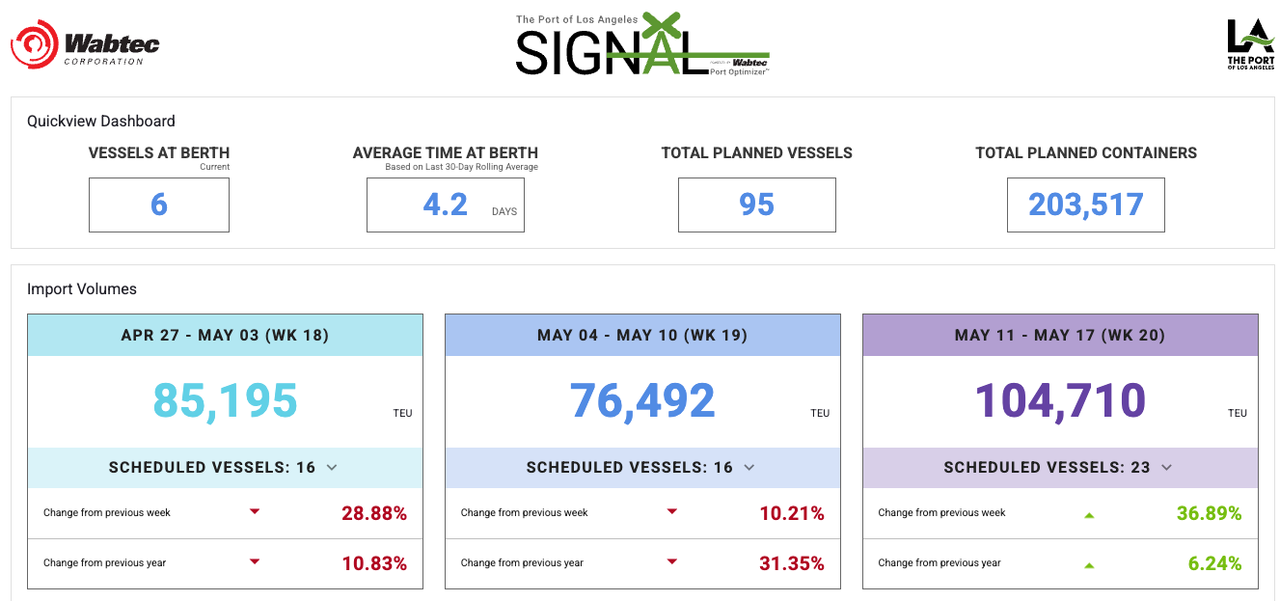
Torsten Slok, chief economist at Apollo, laid out a presentation for clients of what to expect in the weeks ahead:
The consequence will be empty shelves in U.S. stores in a few weeks and Covid-like shortages for consumers and for firms using Chinese products as intermediate goods.
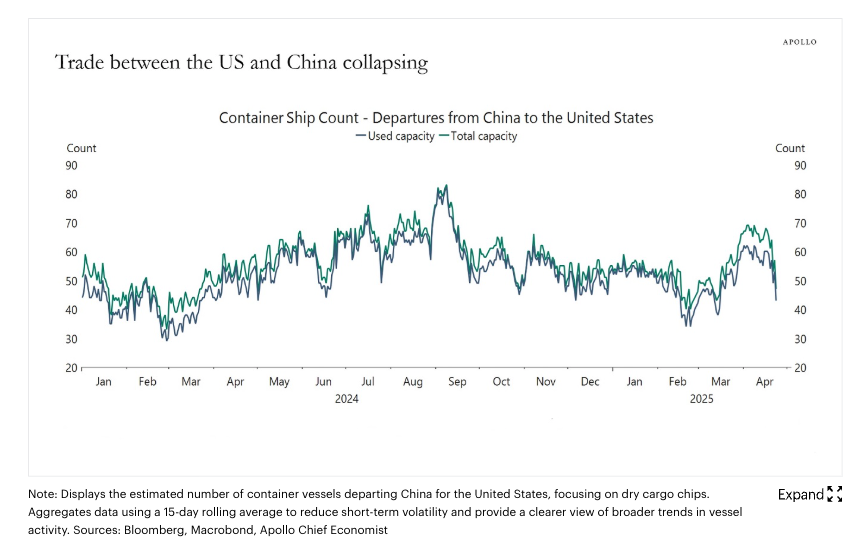
In addition, we will soon begin to see higher inflationbecause there are a significant number of product categories where China is the main provider of certain goods into the U.S. market.
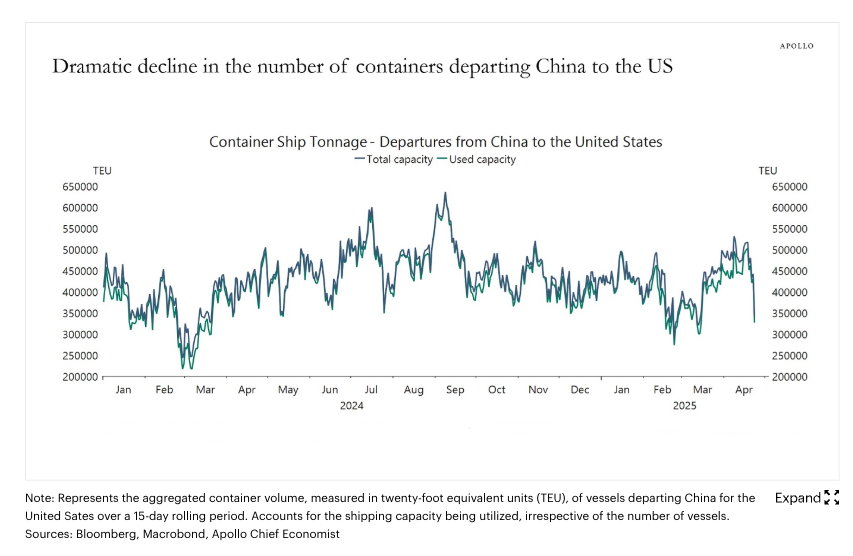
In May, we will begin to see significant layoffs in trucking, logistics, and retail—particularly in small businesses such as your independent toy store, your independent hardware store, and your independent men's clothing store. With 9 million people working in trucking-related jobs and 16 million people working in the retail sector, the downside risks to the economy are significant.
In a separate note, Goldman analyst Trina Chen outlined which Chinese products are most likely to be impacted if shortages materialize over the next couple of months.
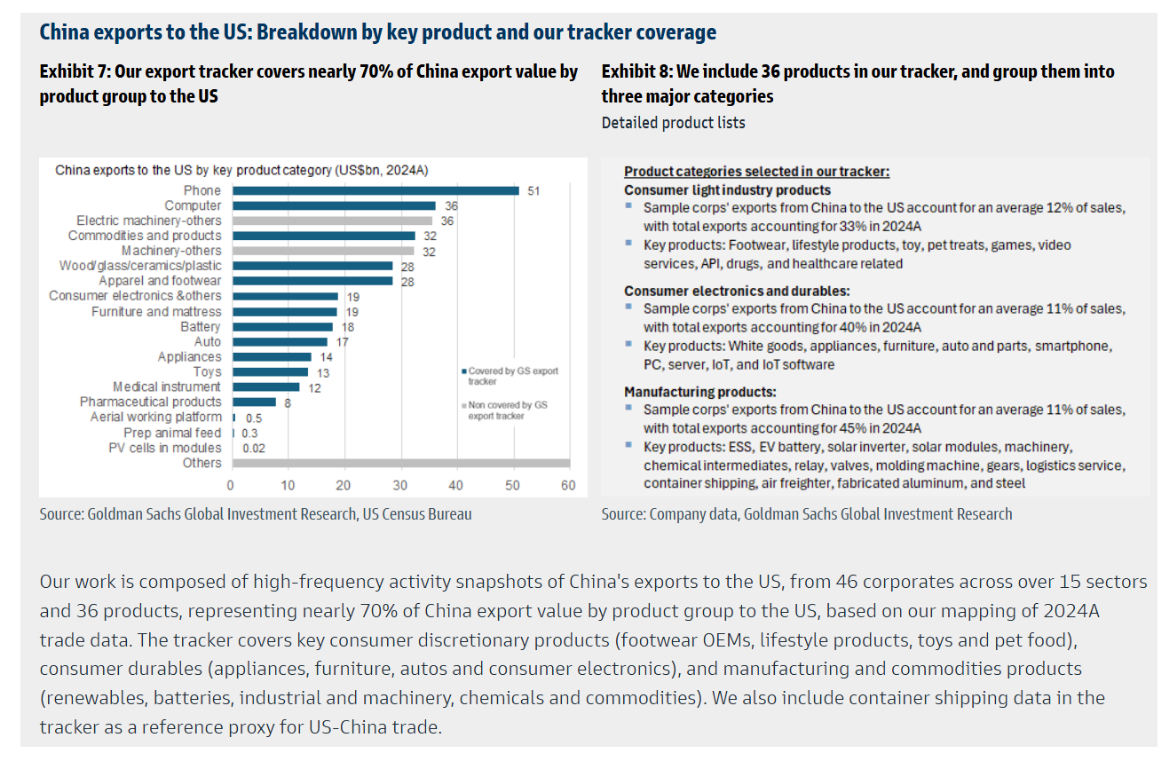
Slok's chart above illustrates that the front-loading surge in imports ended abruptly just ahead of President Trump's "Liberation Day" tariffs. The sharp drop in containerized volumes from China came off previously elevated levels. More or less, this was a natural lull that developed and quickly reversed due to tariffs.
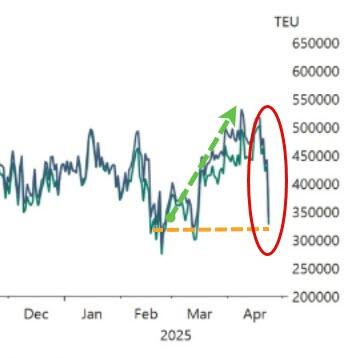
The consequences of the tariffs could lead to Covid-like shortages of high-volume staples from China once warehouse inventories run dry. However, no retailer will allow shelves to go empty—they'll be forced to reorder at higher costs and pass those increases on to consumers. That's why inflation could see a resurgence. Still, this may take months—possibly a full quarter—to fully unfold, by which point a broader U.S. economic downturn may already be in motion.
 our mission: our mission:
to widen the scope of financial, economic and political information available to the professional investing public.
to skeptically examine and, where necessary, attack the flaccid institution that financial journalism has become.
to liberate oppressed knowledge.
to provide analysis uninhibited by political constraint.
to facilitate information's unending quest for freedom.
our method: pseudonymous speech...
Anonymity is a shield from the tyranny of the majority. it thus exemplifies the purpose behind the bill of rights, and of the first amendment in particular: to protect unpopular individuals from retaliation-- and their ideas from suppression-- at the hand of an intolerant society.
...responsibly used.
The right to remain anonymous may be abused when it shields fraudulent conduct. but political speech by its nature will sometimes have unpalatable consequences, and, in general, our society accords greater weight to the value of free speech than to the dangers of its misuse.
Though often maligned (typically by those frustrated by an inability to engage in ad hominem attacks) anonymous speech has a long and storied history in the united states. used by the likes of mark twain (aka samuel langhorne clemens) to criticize common ignorance, and perhaps most famously by alexander hamilton, james madison and john jay (aka publius) to write the federalist papers, we think ourselves in good company in using one or another nom de plume. particularly in light of an emerging trend against vocalizing public dissent in the united states, we believe in the critical importance of anonymity and its role in dissident speech. like the economist magazine, we also believe that keeping authorship anonymous moves the focus of discussion to the content of speech and away from the speaker- as it should be. we believe not only that you should be comfortable with anonymous speech in such an environment, but that you should be suspicious of any speech that isn't.
www.zerohedge.com
| 

